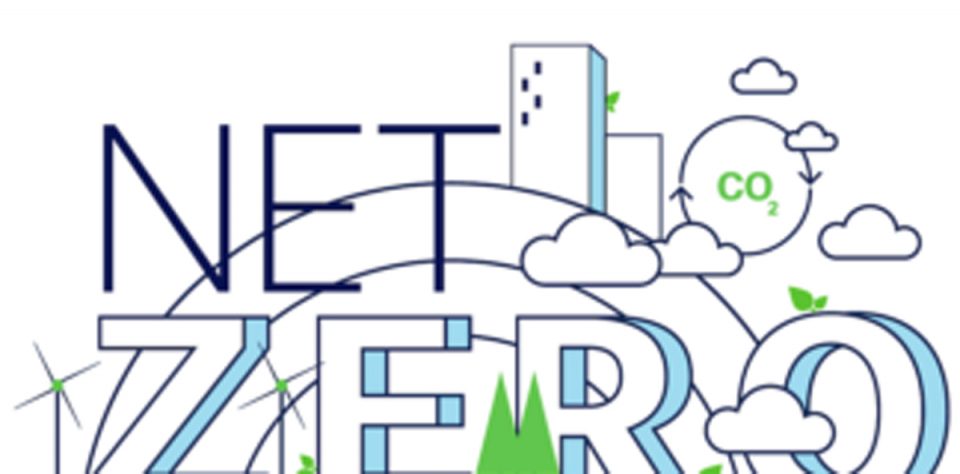Nigeria’s chances of a net zero target remain hobbled, with over 40 per cent of all used vehicles distributed worldwide coming into three African countries led by Nigeria.
A McKinsey & Company report on the continent’s effort at meeting the emissions reduction goal further indicated that 80 per cent of all four-wheeler vehicles end up in sub-Saharan Africa.
Speaking at COP 26 recently, President Muhammadu Buhari explained that Nigeria was aiming to achieve net-zero emissions by 2060, which is to ensure that the amount of greenhouse gas produced is equivalent to what is removed from the atmosphere.
This means that as carbon is being released, it is also being removed from the atmosphere such that emissions are reduced to zero in order to stabilise global temperatures.
The United Nations had said global carbon dioxide emissions would need to reach net zero around 2050 to limit the disastrous effects of climate change.
Speaking on Nigeria’s plans during the climate change conference in Glasgow, Buhari had said that climate change was ravaging all regions of Nigeria, but noted that the country was committed to tackling its impacts.
“There is an urgent need for action on the environment. Desertification in the north, floods in the centre. Pollution and erosion in the coast are enough evidence. For Nigeria, climate change is not about the affairs of tomorrow but what is happening today,” he said.
But the McKinsey report stated that Internal Combustion Engine (ICE) vehicles remain a veritable source of emissions in Nigeria as well as in other African nations, noting that with the country and the continent becoming a dumping ground for such high emission machines, the net zero target was endangered.
It stated that while Nigeria has 25 vehicles per 1,000 persons , it was 17 for Kenya and two for Ethiopia, although it’s 180 on the average globally, with a vehicle life expectancy of 15 to 20 years for cars and two to five years for motorcycles.
“Of all used vehicles, 40 per cent end up in Africa, while more than 80 per cent of all four wheeler vehicles are end up in sub-Saharan Africa with the average price of a used vehicle being $6,000 to $10,000,” it said.
McKinsey stated that globally, the automotive future was looking increasingly electric, due to growing regulatory moves, including forthcoming bans on sales of internal combustion engine vehicles, shifting consumer behaviour, and ongoing improvements in battery and charging technology in other parts of the world.
By 2035, it explained that the world’s major automotive markets—the United States, European Union, and China—are expected to sell only electric vehicles (EVs), and by 2050, 80 per cent of the world’s vehicle sales are expected to be electric.
“Transport currently makes up 10 per cent of Africa’s total greenhouse gas (GHG) emissions, which is expected to increase in line with sub-Saharan Africa’s expanding vehicle parc, all registered vehicles within a defined geographical area.
“In the six countries that make up around 70 per cent of sub-Saharan Africa’s annual vehicle sales and 45 per cent of the region’s population (South Africa, Kenya, Rwanda, Uganda, Ethiopia, and Nigeria), the vehicle parc is expected to grow from 25 million vehicles today to an estimated 58 million by 2040, driven by urbanisation and rising incomes.
“As its vehicle parc grows, the challenge for sub-Saharan Africa will be to push for more sustainable mobility and avoid the risk of becoming the dumping ground for the world’s unwanted used ICE vehicles,” it said.
But it noted that some governments in sub-Saharan Africa had started to announce electrification targets for vehicles and incentives for EV adoption—such as Rwanda’s announced tax exemptions for EV sales.
McKinsey said that while momentum was building, sub-Saharan Africa faces some unique challenges in its electric mobility transition, including, in some cases, unreliable electricity supply, low vehicle affordability, and the dominance of used vehicles.
It reported that while many countries have made significant strides toward improving electricity access, however, electricity reliability remains an issue.
Quoting a 2019 survey across 34 African countries, it stressed that it found that fewer than half of those connected to the grid have reliable electricity.
In addition, it pegged the reported 2020 System Average Interruption Disruption Index (SAIDI) for subSaharan Africa at 39.30 per cent versus 0.87 per cent for developed and high-income countries.
“The second challenge (for electric vehicles) is affordability, shaped by comparatively low household incomes, low availability of asset finance at affordable rates, and higher price points for EVs.
“The third issue is the dominance of used vehicles on much of the continent (excluding a few countries such as South Africa, where used-vehicle imports are banned).
“In most sub-Saharan African countries, around 85 per cent of all four-wheel vehicle sales are used vehicles. This is driven by affordability challenges and weak regulation, with many countries allowing the import of vehicles over 15 years old and with fairly low emissions standards.”
According to the report, a 2020 United Nations Environment Programme (UNEP) report stated that 40 out of 49 sub-Saharan Africa countries have weak or very weak used vehicle regulations.
“New EVs will therefore struggle to compete with old, low-cost ICE vehicles that are readily available in the region.“And, given that 40 per cent of all globally exported used vehicles end up in Africa, the continent runs the risk of becoming a dumping ground for used ICE vehicles while the rest of the world transitions to an electric transport future,” it projected.




